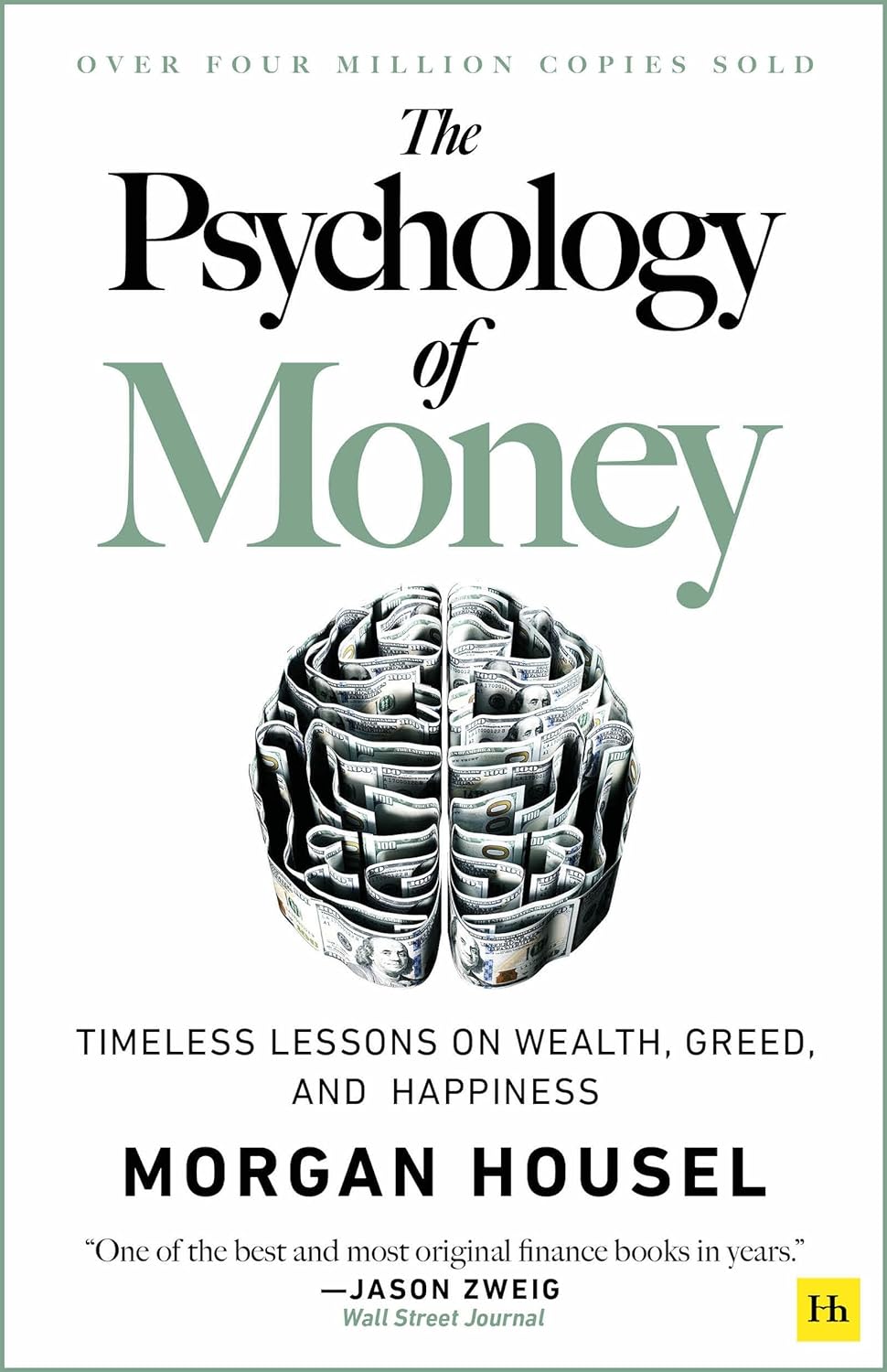The book spans nineteen short chapters, each tackling a different behavioral finance principle. Some chapters explore universally applicable concepts, such as realizing that “No one’s crazy” about money habits. Other chapters cover compound interest, when to take risks, controlling emotions, and how much you need to retire. But the overarching theme is understanding the psychology money triggers in our minds and how this drives our often irrational financial behaviors.
Housel draws on stories and examples from history, literature, business, sports, and pop culture. He seamlessly moves between discussing classic behavioral economics studies, his own family’s habits, Warren Buffett’s investment strategies, and references to movies like Jerry Maguire. The stories bring the concepts to life and make them infinitely relatable. Studies are easily digestible and free from complex jargon.
The Psychology of Money shines a light on the standard—and damaging—money myths most of us believe, then offers practical solutions for overcoming them. The book argues that building wealth has less to do with how smart or ambitious we are and more with avoiding major financial mistakes and having a survival mindset focused on playing the long game. Housel says, “Getting money requires patience, creativity, and survival skills.”
While there are no get-rich-quick solutions here, The Psychology of Money does provide readers with a refreshing mindset reset around their finances. If appropriately applied, Housel’s 19 principles can put anyone—at any income level—toward financial freedom rather than constantly living paycheck-to-paycheck. Understanding the psychology behind our money behaviors gives us the power to make wiser choices moving forward.
